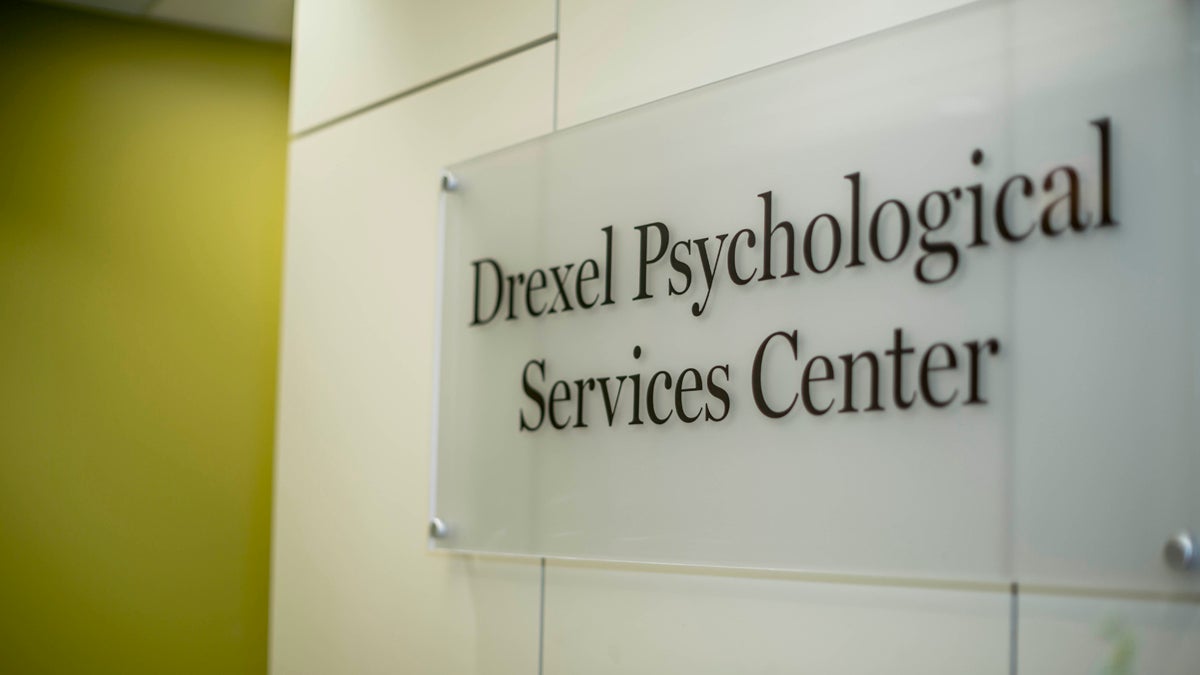Drexel opens low-cost, mental health training clinic in West Philly
Listen
(Image courtesy of Drexel University)
Mental health services can be difficult to access even with insurance.
“The most vulnerable populations are those low-income populations, whether or not they’re insured,” says Dr. Yasmin S. Meah, doctor at Mt. Sinai Hospital in New York and program director for a free clinic in Harlem. “It’s just being underserved across the board.”
This week, Drexel University opened a psychological services center offering sliding-scale treatment options for mental health care, provided by Drexel psychology doctoral students.
Seven faculty members and 14 doctoral students will provide therapy and evaluation services in six categories. They include mood and anxiety disorders, eating disorders, behavioral approaches related to chronic pain, and neurological and forensic assessments for children and adults.
The faculty members meet each patient before eact student-led therapy session, and supervisors give feedback and evaluate care at least once a week.
The center’s goal is to provide hands-on training and to serve people of all socio-economic levels, says director Jennifer Schwartz. “Our fee schedule is based on the number of people in the household and household income, and ranges from $15 to $50 for therapy session.”
Schwartz, who said the fees are negotiable if clients cannot pay, said the fees help defray some of the costs of the center, which is funded through the Drexel Department of Psychology.
In addition to therapy, the center provides testing for children in a number of different areas, with fees starting at $150. Schwartz says insurance often fails to cover these types of tests.
Evaluations are a good use of student mental health services providers, says Meah, because those tests do not require the judgment calls of more complex forms of care.
Students also see benefits from hands-on training. “You feel like you’re doing something,” says Jessi Lander, a medical student and national coordinator for the Society for Student Run Free Clinics.
Low-cost care often comes at a premium for time, but Lander says that’s not always a bad thing. “A lot of patients appreciate the extra time [with a provider], because a lot of times they’re patients that don’t get a lot of social interaction.”
The National Institutes of Health estimate one out of every four adults in the United States suffers from a mental illness each year.
WHYY is your source for fact-based, in-depth journalism and information. As a nonprofit organization, we rely on financial support from readers like you. Please give today.

